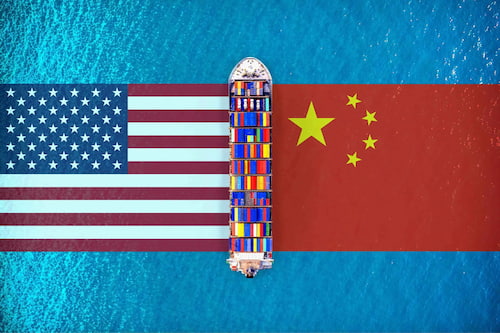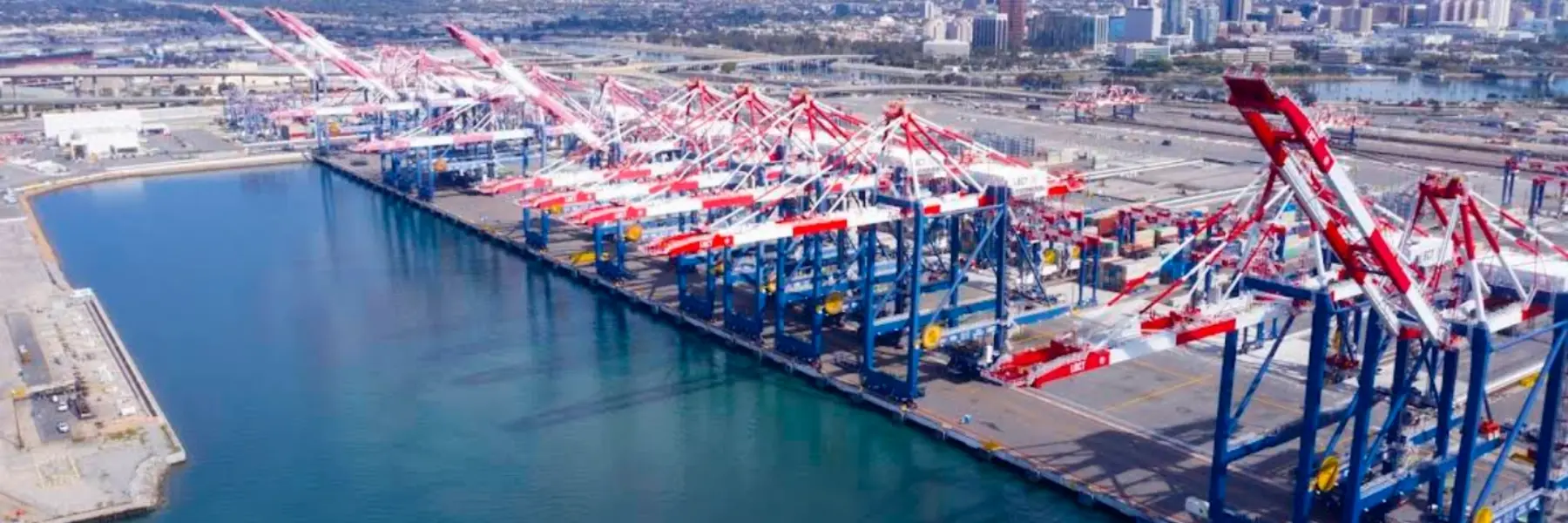 Complete Guide to Shipping from China to Cambridge: Rates, Schedules & Customs Tips
Complete Guide to Shipping from China to Cambridge: Rates, Schedules & Customs Tips
Cambridge, a world-renowned city in Massachusetts’ Greater Boston area, is a global hub for education (Harvard University, MIT), biotechnology, and tech innovation—making shipping from China to Cambridge a critical lifeline for local academia, research institutions, and businesses. As an inland city, cargo from China first arrives at nearby international seaports (Port of Boston) or major airports (Boston Logan International Airport/BOS) before moving 10–15 minutes inland via truck to Cambridge’s research parks, university campuses, and commercial districts. Whether importing precision lab equipment, tech components, educational supplies, or sustainable consumer goods, understanding Ocean FCL, Ocean LCL, Ocean Freight, Airfreight costs, seasonal ship schedules, and New England-specific customs rules is essential. Partnering with a trusted China Freight forwarder like WanHaoFreight forwarder simplifies these steps, cutting costs and mitigating delays from Atlantic weather or academic deadlines. This guide covers everything you need to know about shipping from China to Cambridge.
Ocean Freight from China to Cambridge: FCL vs. LCL
Ocean Freight is the backbone of shipping to Cambridge, accounting for over 72% of shipments—driven by its cost-effectiveness for bulk goods and alignment with the city’s research and tech needs. Cargo follows a “hub-and-spoke” model: first to Port of Boston (Massachusetts’ primary international seaport), then inland to Cambridge via dedicated trucking. It is split into two primary modes: Ocean FCL (Full Container Load) and Ocean LCL (Less than Container Load).
Ocean FCL: Ideal for Bulk Research & Tech Cargo
Ocean FCL involves booking an entire shipping container (10+ cubic meters/CBM) for exclusive use, perfect for Cambridge’s universities sourcing lab equipment, biotech firms importing production machinery, tech startups receiving bulk hardware components, or retailers restocking large inventory. Key benefits include faster transit (no consolidation waits), lower damage risk (sealed containers protect sensitive precision instruments), and predictable pricing—including inland transport from Boston to Cambridge.
Rates for Ocean FCL from China to Cambridge depend on three factors: Chinese origin port, container size, and seasonal demand. The most common sizes are 20-foot (20GP) and 40-foot (40GP/40HQ). From Shanghai Port (a top international seaport), a 20GP container to Port of Boston costs $1,800–$2,600, plus $90–$180 for truck transport to Cambridge (a 15-minute drive via I-93). A 40HQ container (high cube, ideal for bulky lab machinery or tech hardware) ranges from $2,300–$3,300, plus $140–$240 for inland transit. From Shenzhen Port (another major international seaport), ocean rates to Boston are $120–$280 cheaper, thanks to frequent transatlantic sailings optimized for East Coast tech and academic cargo. Seasonal peaks (July–September, ahead of Harvard/MIT’s academic year and biotech conference seasons) raise ocean rates by 20–30%, while off-peak (January–March) offers 10–15% savings—though winter storms may add minor surcharges for inland transport.
WanHaoFreight forwarder specializes in Ocean FCL solutions for shipping from China to Cambridge. Their team negotiates competitive rates with East Coast carriers (Maersk, CMA CGM, Hapag-Lloyd—experts in Boston Harbor routes) and partners with Massachusetts-based trucking firms (familiar with Cambridge’s campus and research park access) for expedited delivery. For universities with annual lab equipment orders, WanHaoFreight offers long-term contracts to lock in combined ocean-inland costs, shielding against seasonal price volatility.
Ocean LCL: Cost-Saver for Smaller Shipments
If your cargo is less than 10 CBM (e.g., small-batch e-commerce goods for Cambridge’s boutique stores, replacement lab parts, educational materials for university departments, or startup tech prototypes), Ocean LCL is the optimal choice. With Ocean LCL, your goods are consolidated with other shippers’ cargo at the Chinese origin port or Port of Boston, spreading costs across parties—critical for Cambridge’s startups, small businesses, and academic departments.
Ocean LCL rates from China to Cambridge are calculated by chargeable weight (whichever is higher: actual weight or volume weight). From Guangzhou Port (a key China Freight forwarder hub), rates to Port of Boston are $78–$118 per CBM, plus $70–$170 for truck transport to Cambridge. For example, shipping 5 CBM of precision lab consumables (for MIT’s research labs) from Guangzhou to Cambridge would cost $390–$590 (ocean to Boston) + $70–$170 (inland) = $460–$760. Additional fees include consolidation ($48–$88), documentation ($32–$52), and hub seaport handling ($72–$102). Unlike many freight forwarders, WanHaoFreight provides all-inclusive quotes—no hidden surcharges for Boston Harbor handling or last-mile delivery to university campuses.
Transit time for Ocean LCL is 27–35 days (21–27 days ocean to Boston + 3–8 days inland), compared to 23–29 days for FCL. For non-urgent cargo—such as pre-semester educational supplies or seasonal retail inventory—LCL offers unbeatable value for small-scale shipping from China to Cambridge.
Ocean Freight Schedules: China to Cambridge
Ship schedules to Cambridge are tied to weekly sailings from major Chinese ports to Port of Boston, with routes optimized for the city’s academic and tech supply chains.
Weather is the primary schedule variable: Atlantic storms (June–November) can delay ocean sailings by 2–5 days, while academic peak seasons (July–August) may cause brief congestion in Chinese ports. WanHaoFreight forwarder provides real-time ship tracking for both ocean and inland stages, including winter weather alerts and campus access updates, enabling Cambridge businesses and universities to adjust delivery plans proactively. To secure preferred sailings—especially for pre-semester lab equipment—book 3–4 weeks in advance.
Airfreight from China to Cambridge: Speed for Urgent Cargo
While Ocean Freight dominates for bulk shipments, Airfreight is indispensable for Cambridge’s urgent needs—such as emergency lab samples, life-saving biotech materials, time-sensitive research equipment, or last-minute academic supplies. Cambridge relies on Boston Logan International Airport (BOS, 10 miles away) as its primary air cargo hub, with short ground transport to the city.
Airfreight Rates & Transit Time
Airfreight rates from China to Cambridge depend on weight, flight type (direct/non-direct), and airport choice:
For example, shipping 70kg of emergency biotech research materials from Shanghai to Cambridge would cost $259–$427 (direct to BOS) + $30–$70 (local delivery) = $289–$497, or $203–$343 (non-direct via JFK) + $40–$80 (ground transport) = $243–$423.
WanHaoFreight forwarder partners with airlines serving Boston (Delta, American, China Southern) to secure priority cargo space—critical during Cambridge’s academic deadlines or biotech research milestones. They also offer temperature-controlled Airfreight for sensitive lab samples and door-to-door service, covering cargo pickup from Chinese warehouses to final delivery at Cambridge’s labs, universities, or tech offices.
Customs Clearance for Cambridge-Bound Cargo
Customs clearance for shipments to Cambridge occurs at Port of Boston (Ocean Freight) or BOS (Airfreight), managed by U.S. Customs and Border Protection (CBP) with a focus on academic and tech cargo compliance. Non-compliance can lead to costly delays—especially devastating for time-sensitive research—so here’s how to ensure a smooth process:
Required Documentation
WanHaoFreight forwarder assists in preparing and reviewing these documents to eliminate errors. For instance, missing FDA approval for biotech materials can delay clearance by 4–6 days—their team has deep expertise in Cambridge’s research regulations and collaborates directly with regulatory bodies to expedite approvals.
Tariffs & Duties
Tariffs on goods from China to Cambridge are determined by HS codes. Key examples for local industries:
Duties are calculated as a percentage of the goods’ FOB (Free On Board) value. Cambridge has no local import taxes, but Massachusetts state sales tax (6.25%) applies to goods sold within the state. WanHaoFreight forwarder also assists with duty drawback programs—universities or businesses re-exporting research equipment may qualify for a refund of duties paid.
Compliance Checks
CBP prioritizes inspections on high-risk cargo:
To avoid delays:
WanHaoFreight forwarder partners with third-party testing labs in China to verify compliance before shipping, reducing inspection risk by 45–55%—a critical advantage for Cambridge’s research institutions and tech firms operating on tight deadlines.
How to Choose the Right Freight Forwarder for Shipping from China to Cambridge
Cambridge’s unique mix of academia, biotech, and tech industries—paired with New England’s logistics challenges—demands a freight forwarder with regional expertise, academic/tech compliance knowledge, and transparent pricing. Here’s why WanHaoFreight forwarder stands out:
1. Specialized Expertise in China-Cambridge Routes
WanHaoFreight has over 12 years of experience shipping to Boston-area cities like Cambridge. Their team understands Port of Boston operations, Cambridge’s campus access rules, and local industry needs—from prioritizing research materials for Harvard/MIT to coordinating tech component deliveries for startups. They leverage alternative routes if highways are congested, ensuring on-time delivery for time-sensitive cargo.
2. Transparent Pricing & Easy Get A Quote Process
WanHaoFreight’s user-friendly “Get A Quote” tool lets you input cargo details (size, weight, type, urgency, academic/tech status) and receive a personalized, all-inclusive quote within 24 hours. The quote breaks down ocean/air costs, inland transport, customs fees, and permit charges—no hidden surprises or last-minute add-ons.
3. End-to-End Support
WanHaoFreight handles every step of the logistics journey:
Whether you need Ocean FCL for bulk lab machinery, Ocean LCL for small-batch research supplies, or Airfreight for emergency biotech materials, their dedicated team provides real-time updates via phone, email, or their online tracking portal.
Conclusion
Shipping from China to Cambridge doesn’t have to be complex—with the right knowledge and a trusted partner like WanHaoFreight forwarder, you can optimize costs, meet tight academic and research deadlines, and avoid customs headaches. Leverage Port of Boston’s capabilities for cost-effective Ocean Freight (FCL for bulk, LCL for small shipments) or BOS for fast Airfreight. With WanHaoFreight’s New England expertise, academic/tech compliance knowledge, transparent pricing, and easy “Get A Quote” process, you can focus on advancing research, growing your tech business, or supporting education while they handle the global logistics. Ready to streamline your shipping? Contact WanHaoFreight today for your personalized China-to-Cambridge shipping solution.
 Easy Shipping From Global, Save Cost
Easy Shipping From Global, Save Cost














